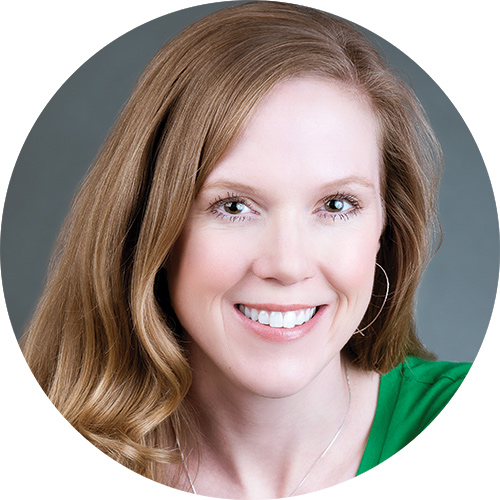By Jenni Schaefer, Meadows Senior Fellow
Strike! I knocked over all of the pins on my first try. Thanksgiving Day was on an upswing. Bowling balls had finally replaced holiday cheese balls. I could relax.
After the traditional holiday meal, my cousins and I had left the house where the rest of the family gathered — still mingling around the food — and headed to the bowling alley.
This was over 20 years ago, and anorexia nervosa had a grip on me. Eating disorders of all forms, shapes, and sizes are not fads, phases, or diets. Similar to addictions, eating disorders are real, life-threatening illnesses.
When Holidays Don’t Feel Like a Holiday
Just as some who battle substances like alcohol experience heightened challenges on New Year’s Eve — a day when countless people indulge in drinking —many people in recovery from eating disorders experience particular hurdles throughout the food-focused holiday season. Years ago, I was an expert at creating excuses to duck out of parties and other festivities. Back then, these events just meant food, food, and more food. Trapped in anorexia, this meant darkness and despair.
When I attended holiday gatherings, my focus wasn’t on the true meaning of the event. Instead, I was thinking about how to avoid eating or how to eat everything in sight without anyone noticing. (Many people with anorexia also binge eat.) If someone was speaking with me at a party, I often wasn’t listening. I was staring at the food carefully displayed on the ornamented table. I desperately yearned for authentic connection, but my eating disorder stood in the way.
Many people in recovery from eating disorders experience particular hurdles throughout the food-focused holiday season.
The big paradox of it all is that an eating disorder isn’t really about food. My struggles were truly about sky-high anxiety, painful perfectionism, and constant self-criticism, among other underlying problems. Starving, bingeing, and purging were symptoms of a much deeper and more complex picture. My friends in Alcoholics Anonymous (AA) often say, “Alcohol wasn’t my problem. It was my solution.”
I related: Food was my “solution,” albeit, an ineffective one to say the very least. To heal, I needed new solutions.
Recovery All Year Round
One friend with 15 years of sobriety in AA shared: “Whether it is the last day of December — New Year’s Eve — or the 14thof April, my recovery must come first.” He emphasized that he needed to live “one day at a time” and stay sober every day. He needed to be willing to go to any lengths to make that happen. His dedication to healing helped me to see that I needed to enter the holiday season with the same commitment to my recovery as the rest of the year. I couldn’t use Thanksgiving or another holiday as an excuse to relapse, which, I admit, was a particular habit of mine.
To help live one day at a time during the holidays, it helped for me to plan activities that weren’t centered on eating. Bowling and basketball were family favorites. Napping was a popular sport as well.
Before attending family gatherings, I also taught loved ones how to support me. I shared what would — and wouldn’t — be supportive. For instance, I asked them specifically not to make comments about food or my appearance. I explained that the eating-disorder filter could even turn, “You look healthy,” into a negative inner spiral of self-hate. Importantly, the tips that I shared with family could be used all year round, too.
For some of my friends, childhood trauma is at the root of their eating disorder. For many, the abuse was at the hands of a family member. In these instances, my brave friends have learned not only to set strong boundaries with their families of origin, but they have also found new families — trusted people they chose in adulthood. Here, too, we must teach people how to support us.
SOS in Your Pocket
My support system of others in eating disorder recovery carried me throughout years of holiday seasons. Even though I was often out of town for events, my support team was hope in my pocket: my phone. Today, text messaging, social media, and mobile apps can make connecting even easier. I know many people who have sent “SOS” text messages directly from the Thanksgiving dinner table. And they received positive reinforcement back immediately.
Even though I was often out of town for events, my support team was hope in my pocket: my phone.
When I was struggling in early recovery, one family member commented on my appearance: “You look great. How do you stay so thin?”
It is such a strange, dismissive, and not to mention dangerous experience to receive a compliment for a life-threatening illness.
But I knew just what to do: I called someone on my support team. I found hope. My friend suggested that I connect with one especially supportive cousin. After hanging up the phone, I asked him, “Do you want to go bowling?”
We grabbed our jackets and … strike!

About Senior Fellow Jenni Schaefer
A Senior Fellow with Meadows Behavioral Healthcare and an advocate for its specialty eating disorders program, The Meadows Ranch, Jenni Schaefer is a bestselling author and sought-after speaker. For more information visit JenniSchaefer.com.

